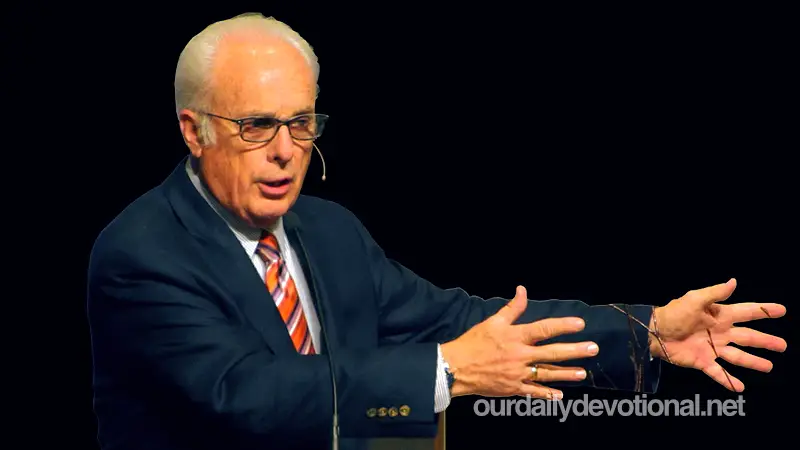(Gr. "ekklesiastes": "one who sits in an assembly, or in a church, and speaks, preacher").
This term, coming from the LXX, designates the book of the OT that the Hebrew calls "Kõheleth", a term etymologically close to the root that means assembly, congregation.
Certain versions, such as the King James Version, follow the Greek and Latin versions, which translate this Hebrew term as "preacher" (Eccl. 1:1).
(a) AUTHOR.
The preacher is identified as "son of David, king over Israel in Jerusalem" (Eccl. 1:1).
The question of his paternity has been much discussed, and two possible solutions have been presented:
(A) Solomon himself, in his old age, wrote this book. He is not named, but it is to him that the allusions to wisdom, pleasures, buildings, servants, riches, and women refer, in which he surpassed all those who had been before him. in Jerusalem (Eccl. 1:16; 2:1-9).
Jewish tradition speaks in this sense, all the while placing Ecclesiastes among the five Scrolls (along with Song of Solomon, Ruth, Lamentations and Esther) and that in the list of the 22 or 24 books of the Canon it is among the last (Ecclesiastes, Esther, Daniel, Ezra-Nehemiah, 1 and 2 Chronicles).
Christian tradition up to Luther has also admitted his Solomonic origin.
(B) The second position asserts that this king "son of David" would not necessarily be Solomon, but a later descendant of David (regarding the extended meaning of this term, see SON).
The characteristics mentioned above, it is stated in this position, could be applied with the same rigor to a king like Uzziah. This position is supported by the fact that the vocabulary and syntax of Ecclesiastes are not entirely in accordance with classical Hebrew, which would be indicative of a late period.
However, this second position faces serious objections. The author is credited with more wisdom than "all those who were before me in Jerusalem." No king after Solomon except the King of kings can justly make this statement.
On the other hand, he affirms that he was king over Israel, which, due to internal evidence, places him within the united monarchy, whose last king was precisely Solomon.
As regards the linguistic characteristics indicative of a later period, they are not evidentiary, and are also based on speculations about the development of the language that lack a rigorous basis.
As for the critics, they claim that it is a patchwork book, written after the exile, in which some disillusioned Israelite wise men would make one of their great kings speak.
But this hypothesis is far from being proven, and does not agree with the intended date of writing. According to Vigoroux, based on this same language argument, critics are divided, regarding the time and the author of the Kõheleth, into more than 24 different groups, and the date they propose ranges between the year 975 and 4 BC. (Dict. of the Bible).
(b) MESSAGE.
This book relates the feelings, experiences, observations of a wise man in Solomon's situation. His message is not related to anything other than earthly life.
The author wonders if man gets any real benefit from all his efforts (Eccl. 1:3). The method used to unravel this problem is that of human wisdom (Eccl. 1:13).
The preacher discovers, through observation and experience, that the only source of satisfaction is found in man himself, in the full exercise of the powers of his body and spirit, but in accordance with the physical and moral laws of the world. where he lives (Eccl. 2:24; 3:12, 13, 22; 5:18; 9:7-10).
Following wisdom (Eccl. 1:12-18) and pleasure (Eccl. 2:1-11) does not bring happiness. These things, however, have value; This is why the preacher is inclined to compare wisdom with foolishness (Eccl. 2:12-23).
He concludes that the joys of work and simple living are what give the greatest satisfaction here below (Eccl. 2:24; cp. Eccl. 5:11).
This is confirmed by the fact that human activities are linked to the stages of each individual's life. There is a certain, inexorable time for the exercise of every intellectual and physical faculty: everything is beautiful in its time (Eccl. 3:1-11), but injustice and oppression frequently prevent one from enjoying it (Eccl. 3 :16-4:3).
Formalism and iniquity are the opposite of wisdom; Riches are frequently harmful and, in any case, less desirable than health (Eccl. 5:1-6:9).
The preacher speaks of a good reputation and the way to obtain it (Eccl. 7:1-10); of the value of wisdom, which is a protection (Eccl. 7:11-22), and of behavior before kings.
The preacher insistently declares that piety constitutes the best course of conduct; which is, if we can put it this way, good policy (Eccl. 7:11-15). Death comes to everything indiscriminately(Gr. "ekklesiastes": "one who sits in an assembly, or in a church, and speaks, preacher").
This term, coming from the LXX, designates the book of the OT that the Hebrew calls "Kõheleth", a term etymologically close to the root that means assembly, congregation.
Certain versions, such as the King James Version, follow the Greek and Latin versions, which translate this Hebrew term as "preacher" (Eccl. 1:1).
(a) AUTHOR.
The preacher is identified as "son of David, king over Israel in Jerusalem" (Eccl. 1:1).
The question of his paternity has been much discussed, and two possible solutions have been presented:
(A) Solomon himself, in his old age, wrote this book. He is not named, but it is to him that the allusions to wisdom, pleasures, buildings, servants, riches, and women refer, in which he surpassed all those who had been before him. in Jerusalem (Eccl. 1:16; 2:1-9).
Jewish tradition speaks in this sense, all the while placing Ecclesiastes among the five Scrolls (along with Song of Solomon, Ruth, Lamentations and Esther) and that in the list of the 22 or 24 books of the Canon it is among the last (Ecclesiastes, Esther, Daniel, Ezra-Nehemiah, 1 and 2 Chronicles).
Christian tradition up to Luther has also admitted his Solomonic origin.
(B) The second position asserts that this king "son of David" would not necessarily be Solomon, but a later descendant of David (regarding the extended meaning of this term, see SON).
The characteristics mentioned above, it is stated in this position, could be applied with the same rigor to a king like Uzziah. This position is supported by the fact that the vocabulary and syntax of Ecclesiastes are not entirely in accordance with classical Hebrew, which would be indicative of a late period.
However, this second position faces serious objections. The author is credited with more wisdom than "all those who were before me in Jerusalem." No king after Solomon except the King of kings can justly make this statement.
On the other hand, he affirms that he was king over Israel, which, due to internal evidence, places him within the united monarchy, whose last king was precisely Solomon.
As regards the linguistic characteristics indicative of a later period, they are not evidentiary, and are also based on speculations about the development of the language that lack a rigorous basis.
As for the critics, they claim that it is a patchwork book, written after the exile, in which some disillusioned Israelite wise men would make one of their great kings speak.
But this hypothesis is far from being proven, and does not agree with the intended date of writing. According to Vigoroux, based on this same language argument, critics are divided, regarding the time and the author of the Kõheleth, into more than 24 different groups, and the date they propose ranges between the year 975 and 4 BC. (Dict. of the Bible).
(b) MESSAGE.
This book relates the feelings, experiences, observations of a wise man in Solomon's situation. His message is not related to anything other than earthly life.
The author wonders if man gets any real benefit from all his efforts (Eccl. 1:3). The method used to unravel this problem is that of human wisdom (Eccl. 1:13).
The preacher discovers, through observation and experience, that the only source of satisfaction is found in man himself, in the full exercise of the powers of his body and spirit, but in accordance with the physical and moral laws of the world. where he lives (Eccl. 2:24; 3:12, 13, 22; 5:18; 9:7-10).
Following wisdom (Eccl. 1:12-18) and pleasure (Eccl. 2:1-11) does not bring happiness. These things, however, have value; This is why the preacher is inclined to compare wisdom with foolishness (Eccl. 2:12-23).
He concludes that the joys of work and simple living are what give the greatest satisfaction here below (Eccl. 2:24; cp. Eccl. 5:11).
This is confirmed by the fact that human activities are linked to the stages of each individual's life. There is a certain, inexorable time for the exercise of every intellectual and physical faculty: everything is beautiful in its time (Eccl. 3:1-11), but injustice and oppression frequently prevent one from enjoying it (Eccl. 3 :16-4:3).
Formalism and iniquity are the opposite of wisdom; Riches are frequently harmful and, in any case, less desirable than health (Eccl. 5:1-6:9).
The preacher speaks of a good reputation and the way to obtain it (Eccl. 7:1-10); of the value of wisdom, which is a protection (Eccl. 7:11-22), and of behavior before kings.
The preacher insistently declares that piety constitutes the best course of conduct; which is, if we can put it this way, good policy (Eccl. 7:11-15). Death comes to everything indiscriminately
Meaning of ECCLESIASTES
Certain versions, such as the King James Version, follow the Greek and Latin versions, which translate this Hebrew term as "preacher" (Eccl. 1:1).







